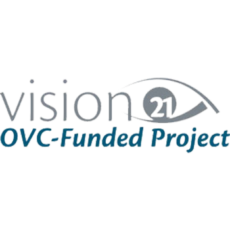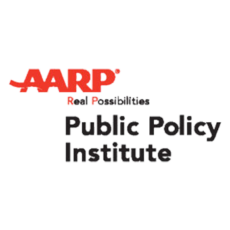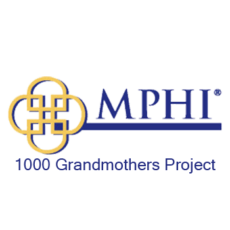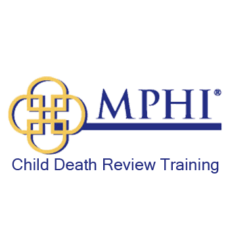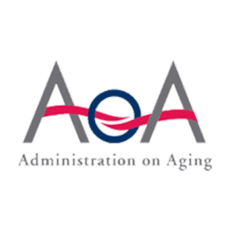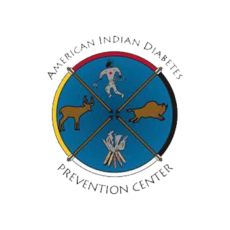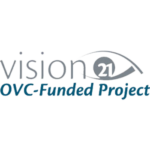Assessment of Facilitators and Barriers for Tribal Practitioners in Elder Abuse Screening and Management
Grant-funded project through the Reaching Victims of Crime Mini-Grant Program at the Vera Institute of Justice. Health care providers, including those in the primary care setting, are uniquely positioned to take an active role in addressing the epidemic of abuse and violence targeting elders, by assisting older victims of violence with accessing available services and supports and developing safety plans. The body of evidence surrounding interventions for prevention and response to elder abuse is very limited. There is currently no research, evidence or best practices on screening and management of elder abuse victims specific to providers who exclusively serve American Indian and Alaska Native (AIAN) elders. This, despite the fact there is international expert consensus that health care providers can and should take a more active role in the screening and management of elder abuse. Funding was used to conduct an assessment of tribal health care providers knowledge, skills and ability related to recognizing and managing cases of elder abuse in their clinical setting. The primary goal was to describe provider, community, cultural, and systematic (clinic-level) factors that contribute to how victims of elder abuse are identified and managed in outpatient clinical settings.
Healthy Heart, Healthy Brain
IA2 partnered with the Association for State and Territorial Health Officials (ASTHO), with support from the CDC Alzheimer’s Disease and Healthy Aging Program, to produce a series of health communication materials to improve quality, availability, and accessibility of public health resources to address the connection between brain health and heart health. All materials were informed by the Healthy Brain Initiative State and Local Public Health Partnerships to Address Dementia, The 2018-2023 Road Map, and the companion Road Map for Indian Country. Materials include a flyer, poster, provider guide for talking with older adults, radio PSAs, two video stories and assistance with materials dissemination. To learn more visit their site.
1000 Grandmothers Project
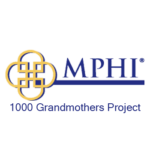 IA2 and the Michigan Public Health Institute jointly completed a project, funded by the Centers for Disease Control and Prevention (CDC), to help prevent sudden unexpected infant deaths (SUID) in American Indian tribes. The 1,000 Grandmothers project, developed by IA2’s leadership, piloted a new model for reducing infant deaths that paired Native grandparents with young mothers (and fathers) to provide mentoring and education on safe sleep practices. The project reached nearly 200 members in four different tribes.
IA2 and the Michigan Public Health Institute jointly completed a project, funded by the Centers for Disease Control and Prevention (CDC), to help prevent sudden unexpected infant deaths (SUID) in American Indian tribes. The 1,000 Grandmothers project, developed by IA2’s leadership, piloted a new model for reducing infant deaths that paired Native grandparents with young mothers (and fathers) to provide mentoring and education on safe sleep practices. The project reached nearly 200 members in four different tribes.
AI/AN Data Project
 IA2 was funded by AARP’s Public Policy Institute to conduct an in-depth analysis of Census Bureau data and draft findings for an “Insights on the Issues” report and accompanying issue brief for 50+ American Indian and Alaska Native adults. In addition to basic demographics, it examined socio-economic variables and health coverage status. The project included the analysis of selected state Census data which AARP is utilizing for a series of state infographics. Publication is anticipated in summer of 2015.
IA2 was funded by AARP’s Public Policy Institute to conduct an in-depth analysis of Census Bureau data and draft findings for an “Insights on the Issues” report and accompanying issue brief for 50+ American Indian and Alaska Native adults. In addition to basic demographics, it examined socio-economic variables and health coverage status. The project included the analysis of selected state Census data which AARP is utilizing for a series of state infographics. Publication is anticipated in summer of 2015.
Elder Medicare Fraud Outreach
 The U.S. Administration on Aging awarded IA2 a Senior Medicare Patrol (SMP) Target Population Integration Grant in 2013 to develop outreach and educational materials, and assist SMPs in their efforts to ensure high quality and culturally competent service delivery to AIAN elders. Major activities included support for an SMP staff Community of Practice, national tribal partnership outreach and development, and design and creation of a comprehensive toolkit for SMPs. The toolkit, which includes a resource manual, brochures, fact sheets, training materials and audio Public Service Announcements (PSAs) in English, Navajo, and Lakota, is scheduled for formal release in February of 2015.
The U.S. Administration on Aging awarded IA2 a Senior Medicare Patrol (SMP) Target Population Integration Grant in 2013 to develop outreach and educational materials, and assist SMPs in their efforts to ensure high quality and culturally competent service delivery to AIAN elders. Major activities included support for an SMP staff Community of Practice, national tribal partnership outreach and development, and design and creation of a comprehensive toolkit for SMPs. The toolkit, which includes a resource manual, brochures, fact sheets, training materials and audio Public Service Announcements (PSAs) in English, Navajo, and Lakota, is scheduled for formal release in February of 2015.
Digital Stories
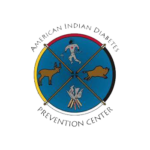 Working with the Oklahoma University Health Science Center, IA2 continued its work creating video stories of AIAN families living with diabetes. According to J. Neil Henderson, Director of the American Indian Diabetes Prevention Center, “these digital stories are providing a powerful example of real people conducting real lives under the real duress of raising a real child with real diabetes.”
Working with the Oklahoma University Health Science Center, IA2 continued its work creating video stories of AIAN families living with diabetes. According to J. Neil Henderson, Director of the American Indian Diabetes Prevention Center, “these digital stories are providing a powerful example of real people conducting real lives under the real duress of raising a real child with real diabetes.”
Child Death Review Training
 Under contract with the National Center for the Review and Prevention of Child Deaths at the Michigan Public Health Institute, IA2 helped create two additional law enforcement/death investigator training conferences, focused on sudden and unexpected infant death review training. Trainings were held in Soldotna and Fairbanks, Alaska. In addition, IA2 co-presented a mini-training at the Office of Victims of Crime (OVC) 14th National Indian Nations Conference: Justice for Victims of Crime.
Under contract with the National Center for the Review and Prevention of Child Deaths at the Michigan Public Health Institute, IA2 helped create two additional law enforcement/death investigator training conferences, focused on sudden and unexpected infant death review training. Trainings were held in Soldotna and Fairbanks, Alaska. In addition, IA2 co-presented a mini-training at the Office of Victims of Crime (OVC) 14th National Indian Nations Conference: Justice for Victims of Crime.
CDC Foundation Project
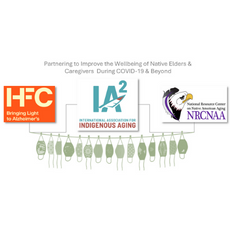 IA2 is currently working with multiple partners to help improve the well-being of Native elders and caregivers impacted by COVID-19 by enhancing tribal services and expanding the capacity of tribal nations and communities to serve their people. Initiatives driven by this project include HFC Respite Grants and Support Groups and Native Elder Caregiver Curriculum (NECC) Training and Support in partnership with the University of North Dakota and the National Resource Center on Native American Aging.
IA2 is currently working with multiple partners to help improve the well-being of Native elders and caregivers impacted by COVID-19 by enhancing tribal services and expanding the capacity of tribal nations and communities to serve their people. Initiatives driven by this project include HFC Respite Grants and Support Groups and Native Elder Caregiver Curriculum (NECC) Training and Support in partnership with the University of North Dakota and the National Resource Center on Native American Aging.
